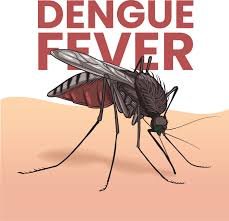
News • 15 Apr 2025
Dengue fever remains a significant public health concern globally, with increasing cases reported in various regions. Understanding the current treatment protocols and preventive measures is crucial for effective management and control.
.
As of 2025, there is no specific antiviral treatment for dengue fever. Management primarily focuses on supportive care:
Hydration: Oral rehydration solutions or intravenous fluids are essential to prevent dehydration, especially in severe cases.
Pain Management: Acetaminophen (paracetamol) is recommended for pain relief and to reduce fever. Nonsteroidal anti-inflammatory drugs (NSAIDs) like ibuprofen or aspirin should be avoided due to the risk of bleeding.
Monitoring: Close monitoring in a healthcare facility is advised for patients with severe dengue, including those showing signs of shock or bleeding.
Early and accurate diagnosis is vital for effective treatment:
NS1 Antigen Test: This test can detect the dengue virus on the first day of fever, aiding in early diagnosis and timely intervention.
Serological Tests: Detection of IgM and IgG antibodies helps in confirming recent or past infections.
The global landscape of dengue fever has seen significant changes:
Increased Incidence: Countries like Bangladesh and Brazil have reported unprecedented numbers of dengue cases in 2025, attributed to prolonged monsoon seasons and urbanization challenges.
Innovative Control Measures: Brazil has launched the world's largest mosquito biofactory to combat dengue by releasing mosquitoes infected with Wolbachia bacteria, which suppresses virus transmission.
Preventing mosquito bites is the most effective way to avoid dengue:
Eliminate Breeding Sites: Remove standing water from containers, tires, and other items where mosquitoes breed.
Use Mosquito Repellents: Apply insect repellents containing DEET, picaridin, or oil of lemon eucalyptus.
Protective Measures: Use mosquito nets and wear long-sleeved clothing, especially during peak mosquito activity times.
Certain populations are at higher risk:
Children and Elderly: These groups are more susceptible to severe dengue and require closer monitoring.
Pregnant Women: Dengue during pregnancy can lead to complications; hence, preventive measures are crucial.